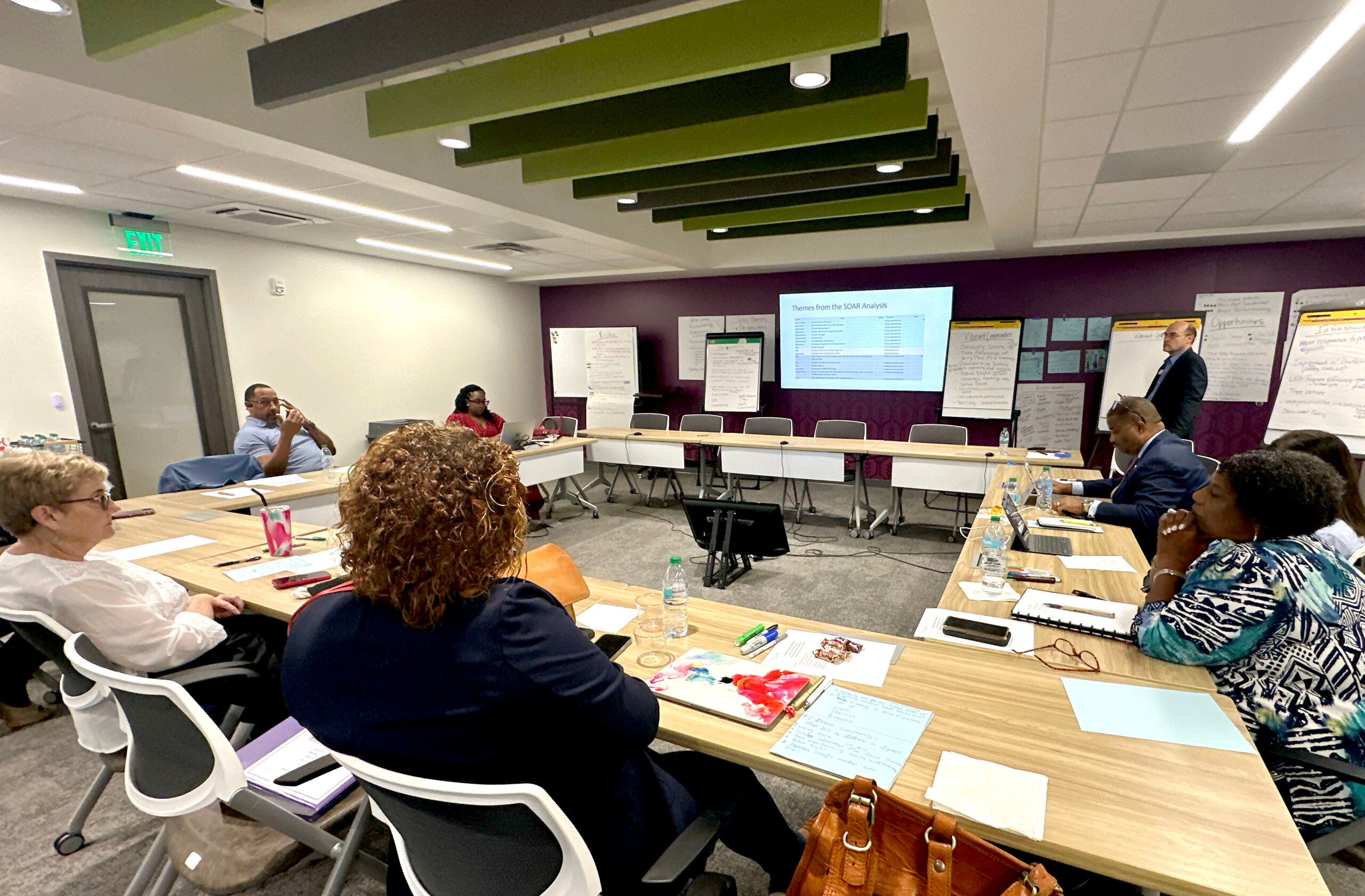The Augusta Commission stepped away from routine business Thursday to focus on the city’s future during a strategic planning retreat aimed at charting priorities and defining a shared vision.
Facilitated by David Tanner of the University of Georgia’s Carl Vinson Institute of Government, the session focused on underused assets, shifting cultural norms, and building the unified strategic plan Augusta has lacked.
Meeting at the Golden Harvest Food Bank conference room, commissioners filled dozens of pages with ideas that Tanner said he’ll refine into formal planning documents.
As the day got underway, Mayor Pro Tem Wayne Guilfoyle said Augusta needs greater direction and cohesion. “All these departments are going every which way with really no direction,” he said. “This is a chance to get our house in order.”
Administrator Tameka Allen said Augusta often allows others’ visions to shape its future. “The city of Augusta needs to have theirs before we adopt any other one. You can’t build up if you don’t have a foundation,” she said.
Commissioners listed Augusta’s many strengths: tourism, Augusta University expansion, Fort Gordon and the Cyber Center of Excellence, minimal traffic and location.
Mayor Garnett Johnson highlighted the Savannah River as one of the city’s greatest assets and said public safety must remain a top priority.
The city has overlooked opportunities, they described. Interim Commissioner Tanya Barnhill-Turnley said Augusta’s people are its most important asset but that the community must rethink how it values what it has.
“Exterior forces put more value on our stuff than we do,” she said. “We’re not maximizing the value of what we have. We need to establish a new culture.”
Commissioner Don Clark said Augusta “does not do a great job of capitalizing on its own story,” often giving away valuable property and maintenance commitments. “Everyone else is maximizing the heck out of what we have,” Clark said.
Commissioner Tony Lewis envisioned a larger downtown skyline and a revitalized Jessye Norman Amphitheater.
Commissioner Catherine Smith Rice emphasized the city’s natural assets — riverfront, trees, and canal — and said Augusta must focus on attracting new residents. “More rooftops, and we want people in those rooftops,” she said.
Commissioners discussed ways to strengthen Augusta’s future, such as adding grocery stores, reducing blight, expanding walkability and building more housing.
Commissioner Tina Slendak noted the city’s developing world-class municipal golf course, beautiful public schools and strong teachers but said the school system needs improvement.
Commissioner Stacy Pulliam urged Augusta to use its “PlanFirst” designation to build better plans and avoid remaining “caught up in a cycle of being reactive and not doing enough forecasting.”
Commissioners also outlined core values — accountability, transparency, fiscal responsibility and innovation — and need for improvements such as updating ordinances, improving internal controls, integrating technology and planning for leadership succession.
Infrastructure was another key focus, with calls to address potholes and flooding more quickly, modernize utilities, improve stormwater systems, and expand the tree canopy.
By the end of the retreat, two draft vision statements had emerged, both emphasizing quality of life, vibrancy and Augusta’s appeal as a place to live, work and play.











